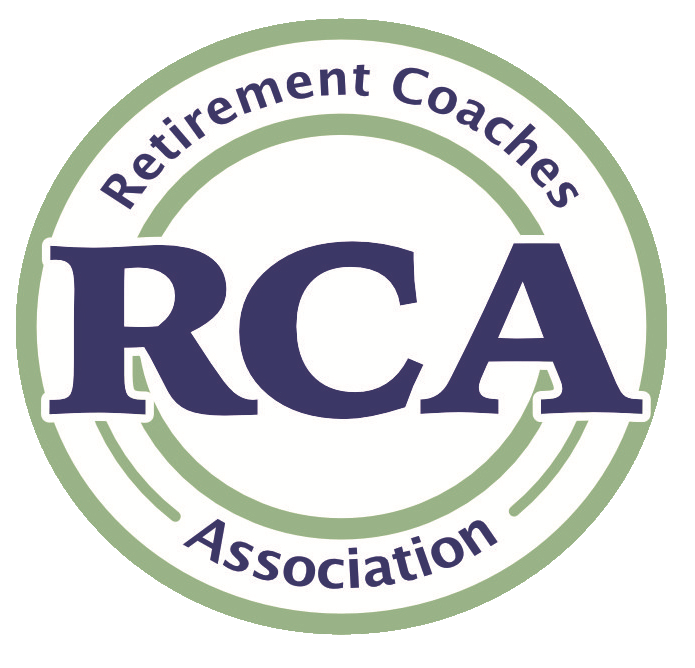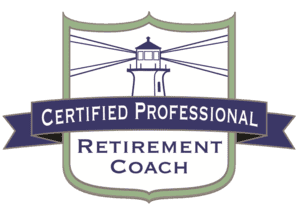Check out this list: you might just find the answers to the retirement planning questions you have, plus a lot more useful information for planning your future.
Top 10 Retirement Planning Questions Answered
1. When should I retire?
A very good, very personal question that ranks at the top of all retirement planning questions. The average age for people slipping into retirement is now 62. You qualify for Medicare at 65. And you may start collecting Social Security, without penalty, at 66. If you wait to collect Social Security until 70, you can benefit by receiving the highest level due you.
All these benchmarks are just chart numbers. The real answer is: retire when you want to, not when you must. Don’t let father time come knocking on your door unexpectedly with your 3 p.m. cake and ice cream in the employee cafeteria. Take control of your exit rather than the other way around.
2. How do I retire on my terms?
Before you go, plan for your departure. Amass all the money you can muster in a 401k plan. Be kind to your successor and work family by offloading all your work wisdom, whether tactical or strategic. Don’t be shy; share your knowledge. Decide if you want to offer your services back to the company after you go as a consultant.
And most importantly, really think about what you will do after you go. Make a plan that covers:
- How you will spend your time
- How you will finance your new life
- With whom and where you will spend your new life
- And most importantly, what shape is my health in and how can I improve it or keep it at an optimal level? Retirement only feels as good as you feel!
3. Should my spouse and I retire at the same time?
It depends on a myriad of factors and is hard to answer in a simple sentence. It really depends on:
- The age of the two individuals
- How close you both are to qualifying for Medicare and Social Security
- How well you have planned for your retirement years in terms of funds, location, and your joint physical health
- Most importantly, that both of you have talked through what the two of you will do with your time together or apart
Finally seek out a third party, like a Retirement Coach, to help facilitate your spousal discussions about all your retirement planning questions. The goal is for both of you to be open and honest with each other about your wants, needs and desires.
4. Should we downsize and maybe relocate?
This is the question that inevitably comes up when you start looking at your personal finances and budgeting for your new life. All the images of retirement show smiling people on sandy beaches doing a lot of nothing. Nothing could be farther from the truth.
The day you step into retirement is just like the day before. Your kids still need you to help with your grandchildren, your same doctors are still in place and your friends still want you to go out on Friday nights. The best advice is to only make changes that will benefit your standard of living and make you feel happy about where and how you live. Make sure your choices come from a place of what is best for us and our circle of love.
5. How do I adjust to not having a steady income?
This is where the dark lord of FEAR first appears when you begin to plan out your retirement in earnest. It’s also when many stop planning, run for the cover of their job and give up thinking those crazy thoughts of retiring. Doing so is easy, comfortable and relieves the FEAR immediately. But it also puts you in extreme danger.
Not being honest with yourself can lead to an unscheduled or abrupt need to plan out your retirement activities while you experience your outplacement. At that point, you’ve lost control of your retirement and guess what? You now have to unexpectedly adjust to not having an income!
Plan for your transition. Decide what you want to do with your time and how much you will need financially. Think hard though…don’t go for the low-hanging fruit of what you know because “I have to do it in order to survive”. Rather, choose your next vocation to be one that gives you joy, happiness and satisfaction. You will find that vocation makes it much easier to fund the kind of life you truly desire.
6. I don’t want to live my spouse’s retirement – what should I do?
Miscommunication station!!! Of all the deep-seated retirement planning questions that don’t get asked, this one is number one with many couples. It is also the one that can severely wound an otherwise healthy relationship.
Many times, the retiring executive just assumes certain things about their retirement and fails to consider what their spouse is thinking. This is why a Retirement Coach can save the day and ask the right questions to draw out the issues that may not be apparent or are assumed. To try and do retirement planning alone is like trying to teach yourself how to fly a plane: all the necessary information is on the internet, but with a do-it-yourself approach, you only get one shot at it. Good luck!
7. I never imagined retiring without my spouse. How do I figure out what to do with my life?
Tragically, this situation occurs more frequently than most people imagine. It is hard enough to adjust to a new retirement lifestyle but to then have your life partner unexpectedly leave this earth really rocks your foundation. It is also when FEAR reemerges as grief, abandonment and depression. You jointly worked your whole lives to prepare for this wonderful new life, and then your partner is no longer there to enjoy what you mutually planned.
At first your family and friends smother you with love and support. You are in a state of shock. You know they are there, but it is all kind of a slow-motion dream. Is this really happening? Over time your family stays close but retreats to living their own lives. Your friends show up in the short-term but slowly they begin to fade away. Why?
Because your plight scares them and they say to themselves, “how often can I say sorry for your loss”? Soon those alienated feelings I spoke of earlier really take hold and can have a devastating effect on you.
But wait…there is an alternative!
- You can seek counseling from a therapeutic professional.
- You can begin to reconstruct your life sans a partnership and become a sole survivor practitioner. You did not plan nor want this to happen, but it has, so be good to yourself.
- Reach out to those family and friends that are scared. Reassure them that life does go on and you would prefer that it goes on with you and them together.
- Turn sadness into solidarity!
8. Why is it taking so long to shift into retirement?
Why? Because you were too smart and did not need someone, like a Retirement Coach, to help you plan out your new life. Oh no, asking for help is weakness. You saved some money. Things will just instantly fall into place. All those retirement ads make it look so nice. I’ll hang out with my friends and bounce some ideas off of them on what I should do.
If only it were that easy.
The road to a successful retirement is paved with the hard work of accepting the fact that your work identity is over, and you must create a new identity about which you feel confident, comfortable and excited.
This identity has is influenced by many factors: what you really want to do because you want to. Your financial situation. Your familial situation. Your circle of friends, whether new or former. And so on. As you can see, with many aspects to consider and retirement planning questions to answer, this new persona does not happen overnight. In fact, it may take many months, if not a few years, to truly manifest itself. The big thing is you accept the fact that change must happen, so you don’t get caught up in a Bill Murray Groundhog Day scenario.
9. How can I get back into the workforce when I am past retirement age?
It is the old “I’m not worthy” or they won’t hire me, “I’m too old” mentality that defeats you even before you begin your search. Assumptions are the main ingredient to defeating yourself when it comes to a senior job search.
First, you need to decide a number of things:
- What kind of job am I seeking?
- Do I want to work full or part time?
- What kind of income is acceptable?
- Do I want to work days, evenings or overnight?
These may seem like rudimentary questions but remember you are starting all over again, so you need to build your new job profile.
When some go through this process, they immediately want to plug back into their former career. That ship has probably sailed. The time to connect with that strategy was when you were putting your exit plan together. A seamless shift into a consulting role at your last workplace has a higher level of success than attempting to do it two or three years later.
Your experience is important, but what is more important is that you amass your personal job profile and then begin to try and match your profile up with what’s out there. The key thing is to be honest with yourself about what you want to do. Seek out the islands of opportunity in that vast ocean of vocations. And be open to start thinking of the world of work in a whole different way.
Think about this: over the past few years, according to the US Bureau of Labor Statistics, 26% of the available workforce left their job for another. That means that 39 million jobs were open for a period of time. You don’t think there may be one for you?
That same agency also pointed out that 6 million jobs went unfilled last year—so don’t be afraid to go back to school and acquire some new skills that will lead to a whole new career. Just remember that you are not old, just adjusting to a different state of your life. You had value before you retired. Now reengage and find your new personal value proposition again.
10. I’m feeling tired, fat and sluggish. What is wrong with me?
You are merely suffering from post-partum work identity depression. As Mike Myers and Dana Carvey used to say on Saturday Night live in unison, “I’m not worthy”!!
You left your old workplace possibly in a hurry and without an exit-and-after plan. You took home a bit of cash and decided to emulate those retirement ads. Traveling, buying a new car, meeting up with old work friends and picking up the check to show how great retirement is, and buying your spouse something wonderful.
Everybody’s happy right? Yes, everybody but you.
Six months after leaving your job and retiring, you sit every day at home, on the couch, watching TV, asking yourself, “What do I do now”? You pick yourself up, shower most days and head to the local pub for lunch and several beverages while the bartender becomes your therapist. Back home at 4PM to catch Judge Judy, which becomes an extended nap, only to be awakened by an irate spouse who asks, “What did you do of consequence today”?
No wonder you feel the way you do. So how do you change things?
First, rise early and engage in exercise, either in an organized fashion at the gym or just a brisk walk to enliven your body and get the blood pumping. Come back for a shower, eat a healthy breakfast, and check the happenings of the day before you’re out the door to work, volunteering, taking a course, leading an AA meeting or simply hanging out with your grandchild while your child goes to work. Activity is the key, both physical and mental.
It is extremely important to keep the weight off, to stay cognately engaged and to do something on a regular basis that gives you both a replacement identity and a feeling of relevance. It is those two things—identity and relevance—that will keep any retiree happy but without it, a downward, depressive spiral has an ample field in which to grow. So stop feeling sorry for yourself. Stop the comfort food binging.
Get yourself organized and engaged in what will be the best time of your life!
Why reach out for extra assistance with crafting your ideal retirement lifestyle?
Because if you’re not careful, your retirement can start to resemble a tangled bed of weeds instead of a well-tended garden. Bob Foley will help you create the retirement lifestyle you desire, without all the stumbles, fits, and starts that can happen when you go it alone.
About Bob Foley
Bob Foley is your Retirement Lifestyle Coach and you can reach him by email at bob@retirementlifestylecoach.com or simply by scheduling time on his calendar.




